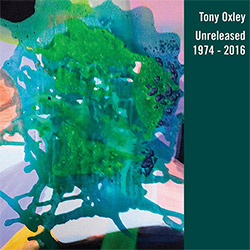
The second in Discus Music's "Unreleased" series selected from percussionist and electronics legend Tony Oxley personal collection, here in three configurations: a quintet with Barry Guy, Dave Holdsworth, Howard Riley and Paul Rutherford; a quintet with Howard Riley, Larry Stabbins, Phillip Wachsmann and Hugh Metcalfe; and a duo with Stefan Hoekler.
In Stock
Quantity in Basket: None
Log In to use our Wish List
Shipping Weight: 3.00 units
EU & UK Customers:
Discogs.com can handle your VAT payments
So please order through Discogs
Sample The Album:
Tony Oxley-drums, percussion, electronics
Barry Guy-double bass
Dave Holdsworth-trumpet
Howard Riley-piano
Paul Rutherford-trombone
Howard Riley-piano
Larry Stabbins-saxophones
Philipp Wachsmann-violin
Hugh Metcalfe-guitar
Stefan Hoelker-percussion
Click an artist name above to see in-stock items for that artist.
UPC: 5051078993126
Label: Discus
Catalog ID: 129CD
Squidco Product Code: 31725
Format: CD
Condition: New
Released: 2022
Country: UK
Packaging: Cardboard Gatefold 3 Panels
Recorded in 1974, 2005,2016, 2019 and 2020.
Available for the first time on CD, this is another collection of essential pieces from one of the originators and masters of this style.
These recordings were selected from the personal collection of Tony Oxley and were mastered for this release with superb sound by Karsten Lehl under Tony's supervision. Some of the pieces were edited into their final composed form many years after the original recording was made.
Performed by a who's who of European improvised music, this new release is an essential addition to Tony's recorded legacy.
Tony Oxley - drums, percussion, electronics with
Tracks 1 - 3
Barry Guy - double bass
Dave Holdsworth - trumpet
Howard Riley - piano
Paul Rutherford - trombone
Track 4
Howard Riley - piano
Larry Stabbins - saxophones
Phil Wachsmann - violin
Hugh Metcalfe - guitar
Track 5
Stefan Hoelker - percussion

The Squid's Ear!
Artist Biographies
• Show Bio for Tony Oxley "Tony Oxley (born 15 June 1938) is an English free-jazz drummer and one of the founders of Incus Records. ony Oxley was born in Sheffield, England. A self-taught pianist by the age of eight, he first began playing the drums at seventeen. In Sheffield he was taught by well respected local drummer Haydon Cook, who had returned to the city after a long residency, in the 1950s, at Ronnie Scotts in London. While in the Black Watch military band from 1957 to 1960 he studied music theory and improved upon his drumming technique. From 1960 to 1964 he led his own quartet which performed locally in England, and in 1963 he began working with Gavin Bryars and guitarist Derek Bailey in a trio known as Joseph Holbrooke. Oxley moved to London in 1966 and became house drummer at Ronnie Scott's, where he accompanied visiting musicians such as Joe Henderson, Lee Konitz, Charlie Mariano, Stan Getz, Sonny Rollins and Bill Evans until the early 1970s. He was also a member of various groups led by musicians such as Gordon Beck, Alan Skidmore and Mike Pyne. In 1969 Oxley appeared on the recording of the later released John McLaughlin album Extrapolation and also formed his own quintet consisting of Derek Bailey, Jeff Clyne, Evan Parker and Kenny Wheeler, releasing the album The Baptised Traveller. Following this album the group was joined by Paul Rutherford on trombone and became a sextet, releasing the 1970 album 4 Compositions for Sextet. That same year Oxley helped found Incus Records along with Bailey and others and also the Musicians Cooperative. He also received a three-month "artist-in-residence" at the Sydney Conservatorium in Australia in 1970. Around this time he joined the London Jazz Composers Orchestra and also got involved with collaborations with Howard Riley. In 1973 he became a tutor at the Jazz Summer School in Barry, South Wales, and in 1974 he formed another group of his own known as Angular Apron. Through the 1980s he worked with various musicians, including Tony Coe and Didier Levallet, also forming his own Celebration Orchestra during the latter half of that decade. Oxley also did extensive touring with Anthony Braxton in 1989, and also began a long-lasting working relationship with Cecil Taylor during this period.Oxley at the Moers Festival, Germany, in 2008 In 1993 he joined an international quartet that included Tomasz Sta ko, Bobo Stenson, and Anders Jormin, and in 2000 he released the album Triangular Screen with the Tony Oxley Project 1, a trio with Ivar Grydeland and Tonny Kluften." ^ Hide Bio for Tony Oxley • Show Bio for Barry Guy "Barry John Guy (born 22 April 1947, in London) is a British composer and double bass player. His range of interests encompasses early music, contemporary composition, jazz and improvisation, and he has worked with a wide variety of orchestras in the UK and Europe. He also taught at Guildhall School of Music. Born in London, Guy came to the fore as an improvising bassist as a member of a trio with pianist Howard Riley and drummer Tony Oxley (Witherden, 1969). He also became an occasional member of John Stevens' ensembles in the 1960s and 1970s, including the Spontaneous Music Ensemble. In the early 1970s, he was a member of the influential free improvisation group Iskra 1903 with Derek Bailey and trombonist Paul Rutherford (a project revived in the late 1970s, with violinist Philipp Wachsmann replacing Bailey). He also formed a long-standing partnership with saxophonist Evan Parker, which led to a trio with drummer Paul Lytton which became one of the best-known and most widely travelled free-improvising groups of the 1980s and 1990s. He was briefly a member of the Michael Nyman Band in the 1980s, performing on the soundtrack of The Draughtsman's Contract. Guy's interests in improvisation and formal composition received their grandest form in the London Jazz Composers Orchestra. Originally formed to perform Guy's composition Ode in 1972 (released as a 2-LP set on Incus and later, in expanded form, as a 2-CD set on Intakt), it became one of the great large-scale European improvising ensembles. Early documentation is spotty - the only other recording from its early years is Stringer (FMP, now available on Intakt paired with the later "Study II") - but beginning in the late 1980s the Swiss label Intakt set out to document the band more thoroughly. The result was a series of ambitious, album-length compositions designed to give all the players in the band maximum opportunity for expression while still preserving a rigorous sense of form: Zurich Concerts, Harmos, Double Trouble (originally written for an encounter with Alexander von Schlippenbach's Globe Unity Orchestra, though the eventual CD was just for the LJCO), Theoria (a concerto for guest pianist Irène Schweizer), Three Pieces, and Double Trouble Two. The group's activities subsided in the mid-1990s, but it was never formally disbanded, and reconvened in 2008 for a one-off concert in Switzerland. In the mid-1990s Guy also created a second, smaller ensemble, the Barry Guy New Orchestra. Guy has also written for other large improvising ensembles, such as the NOW Orchestra and ROVA (the piece Witch Gong Game inspired by images by the visual artist Alan Davie). His current improvising activities include piano trios with Marilyn Crispell and Agusti Fernandez. He has also recorded several albums for ECM, which often focus on the interface between improvisers and electronics, including his work in Evan Parker's Electro-Acoustic Ensemble and his own Ceremony. Guy's session work in the pop field includes playing double bass on the song "Nightporter", from the Japan album Gentlemen Take Polaroids. He is married to the early music violinist Maya Homburger. After spending some years in Ireland, they now live in Switzerland. They run the small label Maya, which releases a variety of records in the genres of free improvisation, baroque music and contemporary composition. Guy's jazz work is characterised by free improvisation, using a range of unusual playing methods: bowed and pizzicato sounds beneath the bass's bridge; plucking the strings above the left hand; beating the strings with percussion instrument mallets; and "preparing" the instrument with sticks and other implements inserted between the strings and fingerboard. His improvisations are often percussive and unpredictable, inhabiting no discernible harmonic territory and pushing into unknown regions. However, they can also be melodious and tender with due regard for harmonic integration with other players, and at times he will even play with a straight jazz swing feel. Similarly, in his concert works, Guy manages to alternate harmonic and rhythmic complexity worthy of 1960s experimentalists such as Penderecki and Stockhausen with joyous, often ecstatic, melody. Works such as "Flagwalk" for string orchestra and "Fallingwater - Concerto for Orchestra" display Guy's compositional skill in handling extended forms and writing for large instrumental groups. Some of his compositions, such as "Witch Gong Game" for ensemble, use graphic notation in conjunction with cue cards to lead performers into playing and improvising material from numbered sections of the score. He is also an architect." ^ Hide Bio for Barry Guy • Show Bio for Dave Holdsworth "Over the last 40 years Dave Holdsworth has been a member an a featured soloist with many of the most important jazz units in the UK, including the Bands/orchestras of Mike Westbrook, Barry Guy,Tony Oxley, Mike Osborne, Chris McGregor, Charlotte Glasson, and Tim Richards. He has appeared on recordings with them and also Herbie Flowers, Willy Russell, Spirit Level as well as his own Quartet. He leads, composes and arranges for bands of his own, including most recently, RHYTHM-A-NING with the music of Thelonious Monk STRAIGHT JACK playing the music of Mike Osborne DAVE HOLDSWORTH QUARTET mostly original material LICKETY SPLIT big brass band jazz SATHIMA the music of Abdullah Ibrahim" ^ Hide Bio for Dave Holdsworth • Show Bio for Howard Riley ^ Hide Bio for Howard Riley • Show Bio for Paul Rutherford "Paul William Rutherford (29 February 1940 - 5 August 2007) was an English free improvising trombonist. Born in Greenwich, South East London, Rutherford initially played saxophone but switched to trombone. During the 1960s, he taught at the Guildhall School of Music and Drama. In 1970, Rutherford, guitarist Derek Bailey and bassist Barry Guy formed the improvising group Iskra 1903, which lasted until 1973. The formation was documented on a double album from Incus, later reissued with much bonus material on the 3-CD set Chapter One (Emanem, 2000). A film soundtrack was separately released as Buzz Soundtrack. Iskra 1903 was one of the earliest free improvising groups to omit a drummer/percussionist, permitting the players to explore a range of textures and dynamics which set it apart from such other contemporary improvising ensembles as SME and AMM. The group's unusual name is the Russian word for "spark"; it was the title of the Iskra revolutionary newspaper edited by Lenin. The "1903" designation means "20th century music for trio"; occasionally Evan Parker played with the group (Iskra 1904) and Rutherford also at one point assembled a 12-piece ensemble called, inevitably, Iskra 1912. The group was later revived with Philipp Wachsmann replacing Bailey, a phase of the group's life that lasted from roughly 1977 to 1995; its earlier work is documented on Chapter Two (Emanem, 2006) and its final recordings were issued on Maya (Iskra 1903) and Emanem (Frankfurt 1991). Rutherford also played with Globe Unity Orchestra, London Jazz Composer's Orchestra, Centipede, the Mike Westbrook Orchestra, and the Orckestra, a merger of avant-rock group Henry Cow, the Mike Westbrook Brass Band and folk singer Frankie Armstrong. He also played a very small number of gigs with Soft Machine. He is perhaps most famous for solo trombone improvisations. His album The Gentle Harm of the Bourgeoisie is a landmark recording in solo trombone and his 1983 Trio album Gheim, recorded at the Bracknell Jazz Festival is another acclaimed work. Rutherford died of cirrhosis of the liver and a ruptured aorta on 5 August 2007, aged 67." ^ Hide Bio for Paul Rutherford • Show Bio for Howard Riley ^ Hide Bio for Howard Riley • Show Bio for Larry Stabbins "Larry Stabbins: Born Bristol, England, 1949; saxophones. Larry Stabbins started playing saxophone at the age of eleven. He started a long association with pianist Keith Tippett when he was sixteen, at the same time serving his musical apprenticeship in countless soul bands. He later contributed to many of Tippett's projects such as Centipede, Ark, Tapestry and the Septet. In addition to occasional duo performances, in the mid-eighties they also worked as a trio for a time with percussionist Louis Moholo, recording the album Tern for FMP Records in Berlin. In London in the early 70's after a short spell in the Brotherhood of Breath, he attended John Stevens' Ealing workshops and played with the Spontaneous Music Orchestra, and occasionally with SME and the Dance Orchestra. As a result he met many of the 'second generation' of British improvisors and often played the Little Theatre Club, sometimes solo, often in combinations with people such as Terry Day, Marcio Mattos, Ken Hyder, Paul Burwell, Maggie Nicols and particularly Roy Ashbury with whom he formed a regular duo, recording Fire without bricks for Bead Records in 1976. Back in Bristol in the late seventies he was involved with the then thriving Bristol Musicians Co-op while still performing in London with Peter Cusack and Tony Wren's Mama Lapato. In 1979 he joined the Tony Oxley Quintet alongside Howard Riley, Barry Guy (later replaced by Hugh Metcalfe) and Phil Wachsmann and played in various permutations of it for many years (including one with Pat Thomas, Manfred Schoof and Sirone in 1992) and also the Celebration Orchestra. At the same time he also joined the London Jazz Composers Orchestra with whom he played until about 1985, and also Peter Brötzmann's Alarm Orchestra and its successor, the Tentet "Marz Combo". The early 80's also saw him play in the Eddie Prévost Quartet, Trevor Watt's Moire Music and Louis Moholo's Spirits Rejoice, as well as touring (the then East) Germany with Heinz Becker's Quintet with Uli Gumpert, Radu Malfatti, Peter Kowald and Stefan Hubner. Alongside this he played with the seminal pop group Weekend and formed a key writing partnership with its guitarist Simon Booth. This became the basis for Working Week, a project that took a melange of latin, soul and jazz into the world of pop and dance music. The band toured extensively in Europe and Japan, performing at most of Europe's major Jazz Festivals, recording five albums for Virgin Records, in addition to writing for film and TV. The demise of Working Week was followed by QRZ? a fusion of jazz and rap which also recorded for Virgin and the German label Loud Minority. After a several years away from music - among other things, doing philosophy at Kings College, London - he currently works solo, as a trio with Pat Thomas and Mark Sanders under the name "Game Theory", in a quartet with Howard Riley, Tony Wren and Mark Sanders, with The Dedication Orchestra, with Keith Tippett's Tapestry and with Soupsongs playing the music of Robert Wyatt. Other projects include working with DJ/ programmer and graphic artist Oktal, and a duo with Louis Moholo." ^ Hide Bio for Larry Stabbins • Show Bio for Philipp Wachsmann "Philipp Wachsmann. Born Uganda, 1944; violin, viola and electronics. In the CD booklet to Gushwachs, John Corbett notes that Phillip Wachsmann came to free improvisation from a predominantly classical background, particularly via the contemporary experiments of "indeterminacy, graphic and prose-based scores, conceptualism and electroacoustics, listening to Webern, Partch, Ives, Berio and Varèse, reading 'Die Reihe' and interrogating the rhythmic, harmonic and melodic preoccupations of Western art music. Starting in 1969, Wachsmann was a member of Yggdrasil, an ensemble performing works by Cage, Cardew, Feldman, Ashley and others and in this group he used contact mikes on the violin and made his own electronic instruments, ring modulators and routing devices. Ironically, his studies with Nadia Boulanger in Paris (1969-1970) pushed him hard in the direction of free music. He recalls: 'Despite her neoclassical orientation, her insistence that composition is about the imagination of performance and its realisation, the live moment, and her stunning ability to make this happen was a powerful influence on me, steering towards 'performance' and therefore 'improvisation'.'" Wachsmann moved from Yggdrasil to Chamberpot - recorded on Bead 2 - and shortly thereafter appeared on Tony Oxley's influential February papers, forward looking in the virtual 'industrial' orientation of some of the tracks, years before this became an accepted genre; the two musicians have continued to work together, in various groupings but notably in the percussionist's Celebration Orchestra. Philipp Wachsmann has also performed and/or recorded with: Derek Bailey's Company, e.g. on the recording Epiphanies; Georg Graewe; Barry Guy; Iskra 1903; King Übü Orchestrü; London Jazz Composers' Orchestra; Evan Parker, particularly as part of the Evan Parker Electronic Project; Quintet Moderne; Fred Van Hove's ML DD 4; Rüdiger Carl's COWWS (now CPWWS) Quintet; and Lines, with Martin Blume, Jim Denley, Axel Dörner and Marcio Mattos. He also plays as a solo musician. Phillip Wachsmann also administers Bead Records." ^ Hide Bio for Philipp Wachsmann • Show Bio for Hugh Metcalfe "Hugh Metcalfe is a musician and filmmaker from London and Suffolk, England. He is best known as the promoter of The Klinker in London, a club which he has run in various venues since at least 1982 (stories vary). He plays guitar, violin, hi-hat and gas mask. He performs in several bands including Bicycle Clip Sex, The Small Faeces, The Cross-Dressed Quartet and Fuck Off Batman. He also performed with noted sound poet Bob Cobbing, saxophonist Lol Coxhill and dancer Jennifer Pike in Birdyak, up until Cobbing's death in 2002. Metcalfe's experimental film work began in 1978, and uses 8mm film methods to produce silent films, often used later as a springboard for free musical improvisation, either by Metcalfe himself or other musicians. During some of the 1980s, Metcalfe ran a record label, 'Klinkerzoundz', releasing records by Metcalfe, Cobbing, the Bow Gamelan Ensemble, and more. The Klinker has, in its 30-year lifespan, acquired a reputation as London's leading forum for free improvisation and marginal music and performance." ^ Hide Bio for Hugh Metcalfe • Show Bio for Stefan Hoelker Stefan Hölker is a drummer and percussionist, known for the groups Andy Lumpp Trio, Tony Oxley's Celebration Orchestra. ^ Hide Bio for Stefan Hoelker
1/26/2026
Have a better biography or biography source? Please Contact Us so that we can update this biography.
1/26/2026
Have a better biography or biography source? Please Contact Us so that we can update this biography.
1/26/2026
Have a better biography or biography source? Please Contact Us so that we can update this biography.
1/26/2026
Have a better biography or biography source? Please Contact Us so that we can update this biography.
1/26/2026
Have a better biography or biography source? Please Contact Us so that we can update this biography.
1/26/2026
Have a better biography or biography source? Please Contact Us so that we can update this biography.
1/26/2026
Have a better biography or biography source? Please Contact Us so that we can update this biography.
1/26/2026
Have a better biography or biography source? Please Contact Us so that we can update this biography.
1/26/2026
Have a better biography or biography source? Please Contact Us so that we can update this biography.
1/26/2026
Have a better biography or biography source? Please Contact Us so that we can update this biography.
Track Listing:
1. The Embrace (1974 / 2020) 09:20
2. Ensemble 1 - (1974 / 2005) 07:30
3. Ensemble 2 - (1974 / 2019) 04:28
4. Frame (1981) 14:53
5. Combination (2016) 11:52
Improvised Music
Free Improvisation
Electro-Acoustic
Jazz
Electro-Acoustic Improv
London & UK Improv & Related Scenes
Percussion & Drums
Quintet Recordings
Duo Recordings
Staff Picks & Recommended Items
Top Sellers for 2022 by Customer Sales
Search for other titles on the label:
Discus.

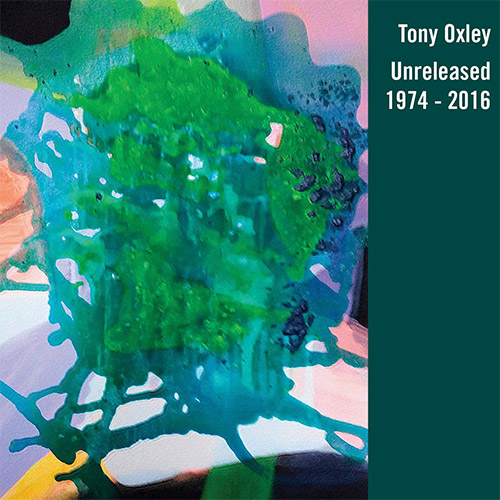
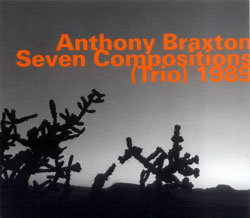

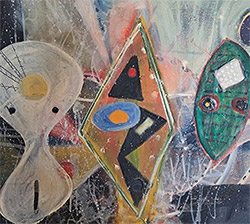
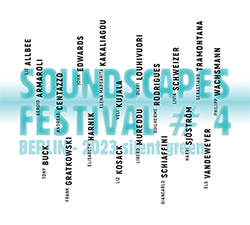


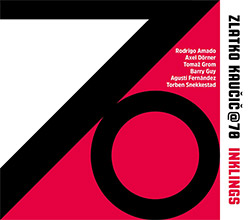



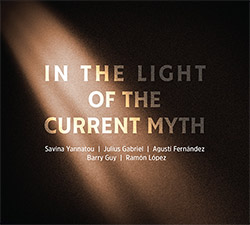


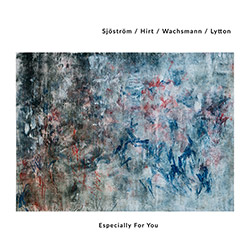
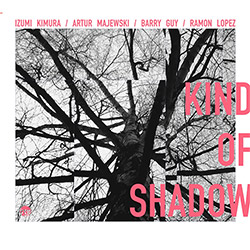

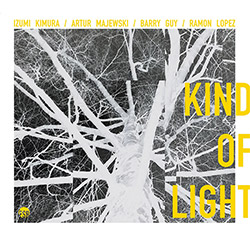
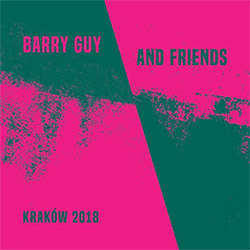


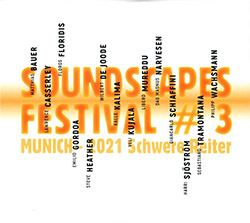
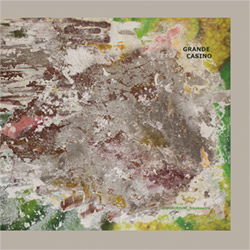
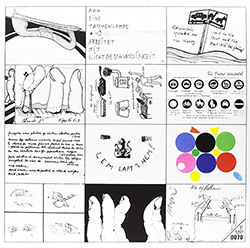
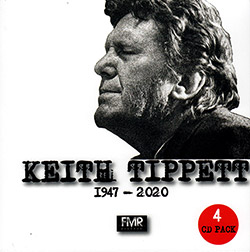
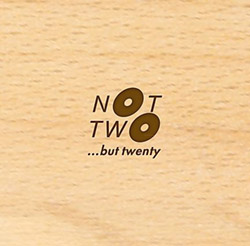


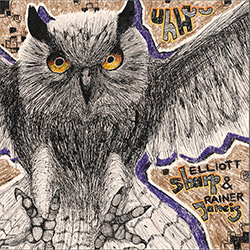
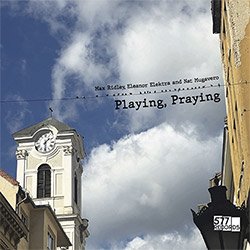

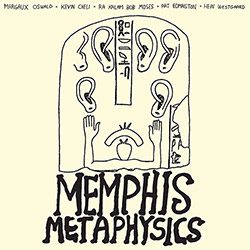
![Hoffman, Christopher: REX [VINYL]](https://www.teuthida.com/productImages/misc4/36934.jpg)
![Wrens: Half Of What You See [VINYL]](https://www.teuthida.com/productImages/misc4/37095.jpg)

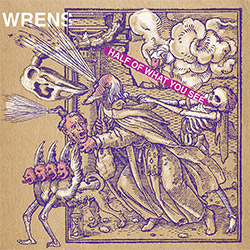
![Cartier, Pierre: Chansons de Douve [2 CDs]](https://www.teuthida.com/productImages/misc3/cartierChansonsDouve.jpg)



![Davies, Angharad / Burkhard Beins : Meshes Of The Evening [VINYL]](https://www.teuthida.com/productImages/misc4/36990.jpg)
![Bussmann, Nicholas / Sven-Ake Johansson / Yan Jun: Tea Time [Vinyl]](https://www.teuthida.com/productImages/misc4/36991.jpg)
![Feldman, Morton / GBSR Duo w/ Taylor MacLennan: Trios [6 CD BOX SET]](https://www.teuthida.com/productImages/misc4/37020.jpg)
![Williams, Jessica: Blue Abstraction: Prepared Piano Project 1985-1987 [VINYL]](https://www.teuthida.com/productImages/misc4/37080.jpg)
![Levin, Daniel / Laurent Estoppey: Freedom From The Known [VINYL]](https://www.teuthida.com/productImages/misc4/37091.jpg)
![Fagaschinski, Kai: Aerodynamics [VINYL 2 LPs]](https://www.teuthida.com/productImages/misc4/36992.jpg)
![Allbee, Liz: Breath Vessels [VINYL]](https://www.teuthida.com/productImages/misc4/37012.jpg)
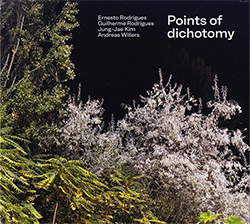
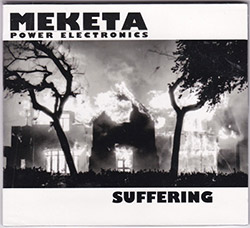


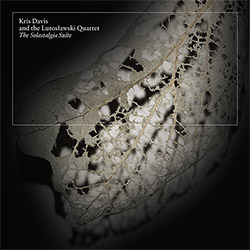
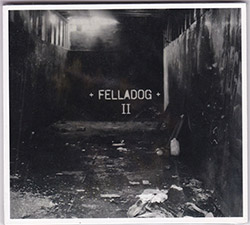


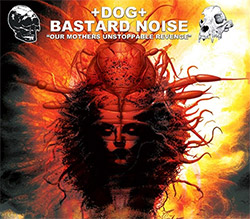



![Parker, Evan / Andrea Centazzo: Bullfighting On Ice! Live In Padova 1977 [VINYL]](https://www.teuthida.com/productImages/misc4/37064.jpg)
![Curran, Alvin / Andrea Centazzo / Evan Parker: Real Time [VINYL]](https://www.teuthida.com/productImages/misc4/37065.jpg)
![Curran, Alvin / Andrea Centazzo / Evan Parker: Real Time Two [VINYL]](https://www.teuthida.com/productImages/misc4/37066.jpg)
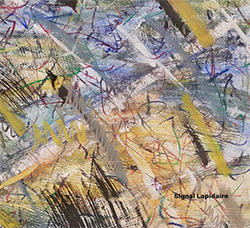

![Rodrigues, Ernesto / Jung-Jae Kim / Guilherme Rodrigues / Eric Bauer / Stephen Flinn: 5 In The Afternoon [2CDs]](https://www.teuthida.com/productImages/misc4/36957.jpg)



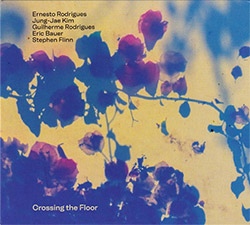





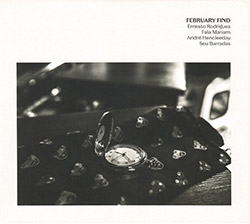
![Evans, Peter / Being & Becoming: Ars Ludricra [VINYL + DOWNLOAD]](https://www.teuthida.com/productImages/misc4/37026.jpg)

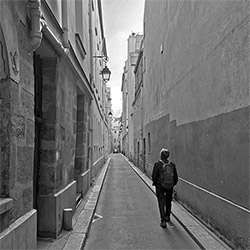
![Belorukov, Ilia / Alex Riva: Wrestling For Futility [CASSETTE w/DOWNLOAD]](https://www.teuthida.com/productImages/misc4/36994.jpg)


![Genthon, Anouck / Lionel Marchetti: Suite Blanche [2 CDs]](https://www.teuthida.com/productImages/misc4/36642.jpg)
![Toeplitz, Kasper T.: Erosions Programmees [CD + BOOKLET]](https://www.teuthida.com/productImages/misc4/36639.jpg)
![Gate, The : Almost Live [CASSETTE + MAGAZINE]](https://www.teuthida.com/productImages/misc4/36836.jpg)






![A Magic Whistle: The Solar Cell [VINYL]](https://www.teuthida.com/productImages/misc4/36658.jpg)

![McGee, Hal: Columbus Expedition [Cassette w/ Download]](https://www.teuthida.com/productImages/misc4/36650.jpg)


![Jaeger, Kassel: Fernweh [VINYL 2 LPs]](https://www.teuthida.com/productImages/misc4/36541.jpg)




![Frey, Jurg : Composer, Alone [3 CDs]](https://www.teuthida.com/productImages/misc4/36927.jpg)








![Frey, Jurg with ensemble]h[iatus: Je Laisse A La Nuit Son Poids D](https://www.teuthida.com/productImages/misc4/36988.jpg)




![Pisaro-Liu, Michael: Within (2) / Appearance (2) [2 CDs]](https://www.teuthida.com/productImages/misc4/36831.jpg)










![Musicworks Magazine: #151 Summer 25 [MAGAZINE + CD]](https://www.teuthida.com/productImages/misc4/36559.jpg)

![Brown, Dan / Dan Reynolds: Live At The Grange Hall [unauthorized][CASSETTE]](https://www.teuthida.com/productImages/misc4/36245.jpg)

![Zorn, John: The Song of Songs [CD + CD BOOK]](https://www.teuthida.com/productImages/misc4/36923.jpg)

![Coultrain: Mundus [COLORED VINYL]](https://www.teuthida.com/productImages/misc4/33056.jpg)
![Hprizm: Signs Remixed [COLORED VINYL]](https://www.teuthida.com/productImages/misc4/30635.jpg)
![Halls Of the Machine: All Tribal Dignitaries [CASSETTE w/ DOWNLOAD]](https://www.teuthida.com/productImages/misc4/36134.jpg)



![Koenjihyakkei: Live at Club Goodman [2 CDs]](https://www.teuthida.com/productImages/misc4/36111.jpg)

![Sorry For Laughing (G. Whitlow / M. Bates / Dave-Id / E. Ka-Spel): Rain Flowers [2 CDS]](https://www.teuthida.com/productImages/misc4/35985.jpg)

![Rolando, Tommaso / Andy Moor : Biscotti [CASSETTE w/ DOWNLOADS]](https://www.teuthida.com/productImages/misc4/36106.jpg)


![Electric Bird Noise / Derek Roddy: 8-10-22 [CD EP]](https://www.teuthida.com/productImages/misc4/35970.jpg)








![Elephant9 : Mythical River [VINYL]](https://www.teuthida.com/productImages/misc4/34624.jpg)



![Elephant9 with Terje Rypdal: Catching Fire [VINYL 2 LPs]](https://www.teuthida.com/productImages/misc4/35355.jpg)
![Coley, Byron: Dating Tips for Touring Bands [VINYL]](https://www.teuthida.com/productImages/misc4/17906.jpg)

![Lost Kisses: My Life is Sad & Funny [DVD]](https://www.teuthida.com/productImages/misc4/lostKissesDVD.jpg)